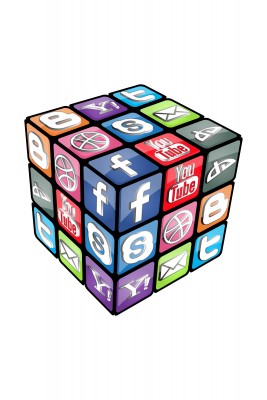A lot of people have been talking about the split between Twitter and LinkedIn, but nobody seems to have a very good understanding of what caused the split in the first place. This may not bode well for SEO Positive, a UK SEO Agency who uploads relevant Tweets to independent marketing agents’ websites. What we do know is that the divorce became official on June 29th, 2012, under semi-mutual conditions. Well, not really.
The reality is it’s more of a one-way street than anything else. Users of LinkedIn can still post updates from LinkedIn to Twitter but Tweets won’t appear on the LinkedIn newsfeeds. SEO Positive, the UK SEO Agency who manages Twitter, will likely see a huge drop in Tweets as a result of the split.
Logic
Admittedly it turned a few heads when news of the divorce tore across the web, with most people questioning the logic behind it. It was actually, according to Twitter, just another rung on the business ladder. “Expandable tweets,” which allow the viewer to see the entire conversation preceding a tweet, didn’t show up on LinkedIn. The interface didn’t support it. Michael Sippey, the Product Team Director at Twitter, addressed the issue in a blog post, indicating that it was essential for viewers to be able to view these expandable tweets, and that it just wasn’t happening.
Money?
The concept of revenue was not a passive theme in Twitter’s decision to drop LinkedIn as a partner. Twitter generates most of its revenue through advertisers. That said, it makes perfect sense that Twitter would want to keep users on the site as opposed to using third party applications.

Tumblr, Too?
LinkedIn wasn’t Twitter’s only victim. Tumblr, one of Twitter’s first partners, was informed recently that users will no longer be able to find Twitter friends through the Tumblr application. This came as a surprise to Tumblr, whose long-standing relationship with Twitter has aided the platform’s growth drastically. Tumblr released an official statement regarding the separation expressing their disappointment.
This move is thought by some to be a measure of distancing in order to lend weight to Twitter’s autonomy. From there, we can only speculate as to the reasons for the separation. Dropping LinkedIn was one thing. Dropping both LinkedIn and Tumblr within such a short amount of time is quite another, and the two bold moves should possibly be viewed as one.

Personally – I think it’s because too many people have miss-used the third party apps and programs. A lot of people tend to use these spammy methods for self-growth and not really contributing value to their users. Would you accept an invite from someone who posts every hour for 24hours a day – To me it’s just means low quality content and a spammer.
The success of Twitter as one of the leading platforms for social networking may be attributed to their open nature as evidenced by numerous tie-ups they made so this came as a surprise to me. This decision to stop playing nice may be detrimental to their reputation but we cannot blame them for trying to protect their company from third-parties who may not be able to convey their features the same way. Thanks!
Good point, Kristine. Yes, it surprised me, too and I wonder what ramifications these actions will have, good or bad, or possibly a combination of both.
Although these are only speculations, these reasons are most likely why Twitter had to part ways with Linkedin and Tumblr. I personally think that this may also be due to the increasing level of irrelevant noise evident in most of the updates of individuals who intend to spam the platform. Thanks for sharing your thoughts 🙂
Good point, Joy, with the reference to “irrelevant noise.” While some may be aware and trying not to contribute to that irrelevant noise, many use apps and so forth, not realizing that they may be contributing. It would be easiest for Twitter to disconnect the apps rather than educate every last Twitter user. Interesting perspective. Thanks!